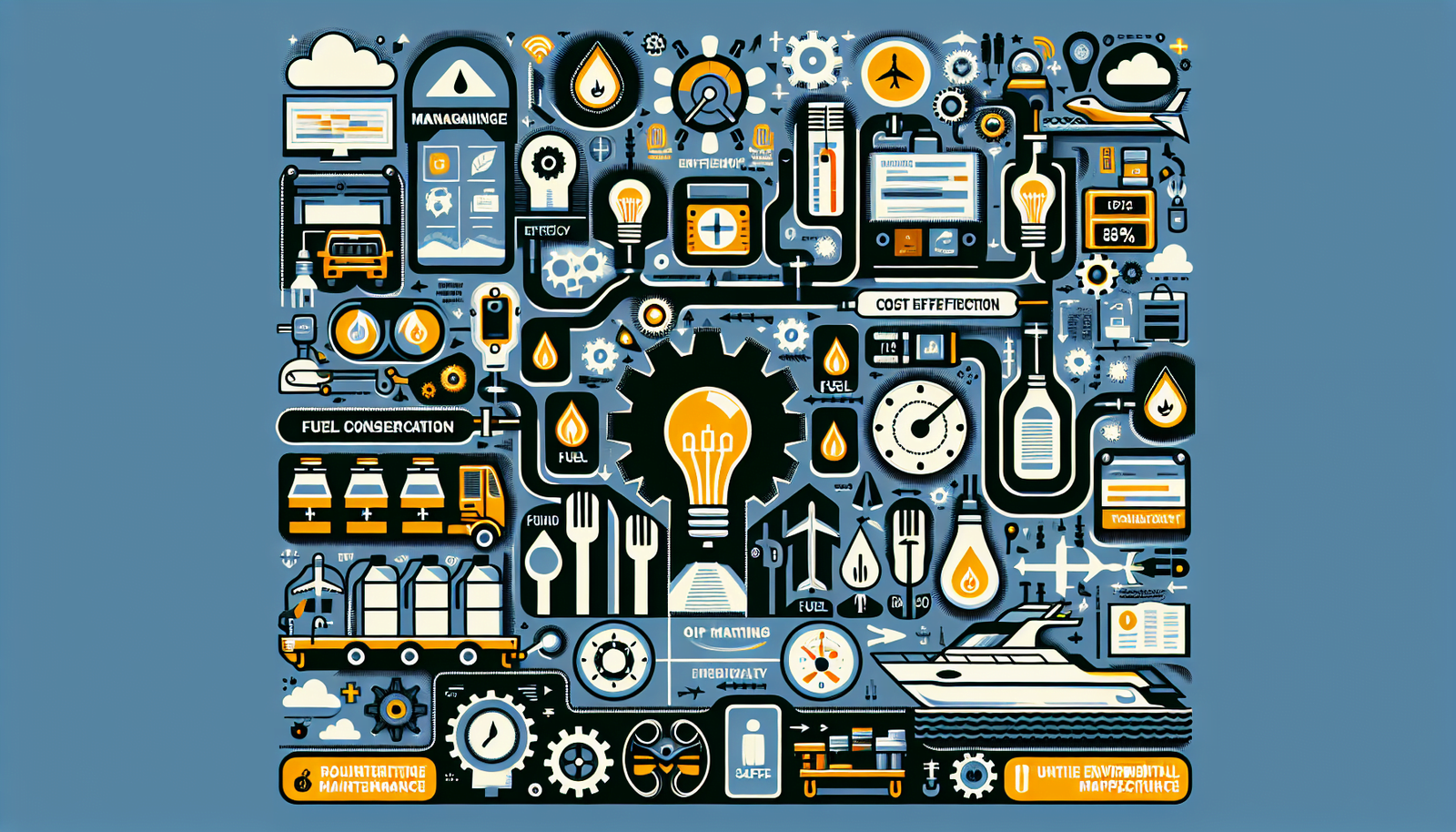In “Proper Fuel Management For Boat Engines,” you’ll discover the importance and the ins and outs of efficient fuel management for your boat engine. It’s not just about topping off the tank; there’s so much more to it. Here’s your guide on maintaining the perfect fuel balance, understanding the technical aspects of your boat’s engine, selecting the right type of fuel, and keeping environmental considerations in mind. In this comprehensive guide, you’ll learn not only how to improve performance and save money, but also how to extend the useful life of your boat and ensure your safety on the water.
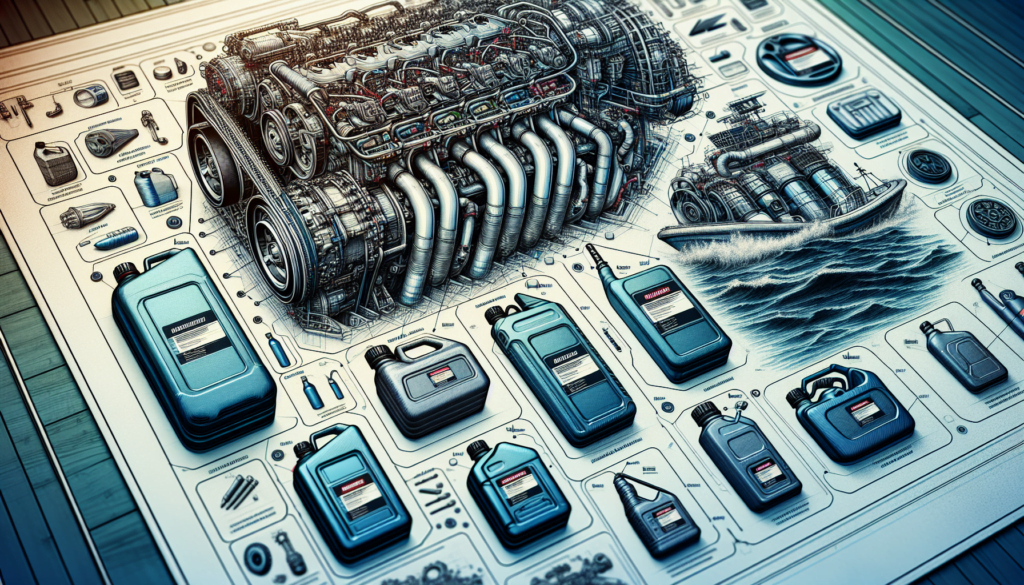
Understanding The Basics Of Boat Fuel Systems
When you’re out on the water, the last thing you want to worry about is your boat’s engine and fuel system. Understanding the basics of boat fuel systems is the first step to ensure smooth sailing.
Parts of a typical boat fuel system
A boat fuel system is comprised of various critical parts. Typically, it includes the fuel tank where the fuel is stored, the fuel lines which transport fuel from the tank to the engine, the fuel pump that pressurizes the fuel, fuel filters to remove impurities, and the carburetor or fuel injection system that delivers fuel to the engine.
Types of fuel used in boats
Boats use several types of fuel, commonly diesel, gasoline, and propane. Diesel is the most common fuel used in bigger boats and yachts due to its efficiency and safety. Gasoline is commonly used in smaller boats and personal watercraft, while propane is typically used for onboard heating and cooking facilities. Each type of fuel has its benefits and considerations, and knowing which one your boat uses is crucial.
The function of each part in a fuel system
Each component of your boat’s fuel system plays a vital role. The fuel tank holds the fuel, while the fuel lines transport fuel to the engine. The fuel pump pressurizes the fuel, ensuring it is delivered at the proper rate. Fuel filters remove impurities that could damage the engine. Finally, the carburetor or fuel injection system delivers the right mixture of air and fuel to the engine for combustion.
The Importance Of Proper Fuel Management
Proper fuel management is not just about saving money; it significantly affects your boat’s performance and longevity.
Increasing the lifespan of your boat engine
Maintaining and managing your boat’s fuel system can significantly extend its lifespan. Regular maintenance ensures that all the components of your fuel system work efficiently and optimally, reducing wear and tear on the engine.
Reducing the risk of engine malfunctions
A well-managed fuel system reduces the probability of engine malfunctions. Clean and premium-grade fuel, along with routine inspections and maintenance, can avert common engine problems, helping you avoid costly repairs and inconvenient breakdowns.
Improving fuel efficiency
Proper fuel management can lead to improved fuel efficiency. An efficient fuel system means that your engine can extract as much energy as possible from the fuel, allowing you to travel further on the same amount of fuel.
Routine Inspection And Maintenance Of Fuel System
Just like any mechanical system, your boat’s fuel system requires routine inspection and maintenance to keep working at its best.
How frequently you should inspect your fuel system
As a general rule, you should inspect your boat’s fuel system at the beginning of the boating season and then maintain a routine check-up every month, especially if you use your boat frequently.
What to look for during inspection
During your inspection, pay attention to the condition of fuel lines, looking for any signs of wear or damage. Look at the fuel tank for any leaks or cracks. Checking fuel filters for contamination and replacing them if necessary is also essential.
How to maintain your boat’s fuel system properly
Proper maintenance includes cleaning your fuel system regularly, checking and replacing fuel filters as needed, and ensuring that your fuel pump is working correctly. Using quality fuel and additives can also help maintain the condition of your boat’s fuel system.
Cleaning The Fuel System
Like any other mechanical system, your boat’s fuel system accumulates dirt and grime over time, which requires cleaning.
Signs that your fuel system needs cleaning
If your boat doesn’t accelerate as it used to or if the engine misfires, sputters, or stalls, it may be a sign that your fuel system needs cleaning.
Steps to clean your boat’s fuel system
To clean your boat’s fuel system, start by adding a marine fuel system cleaner to your fuel tank and run your engine to circulate the cleaner. Then, replace the fuel filters and clean the fuel injectors.
Tools required for cleaning
You may need a fuel line cutter, new fuel line hose, a marine fuel system cleaner, and hose clamps. Also, a fuel filter wrench can be useful for removing the old fuel filters.
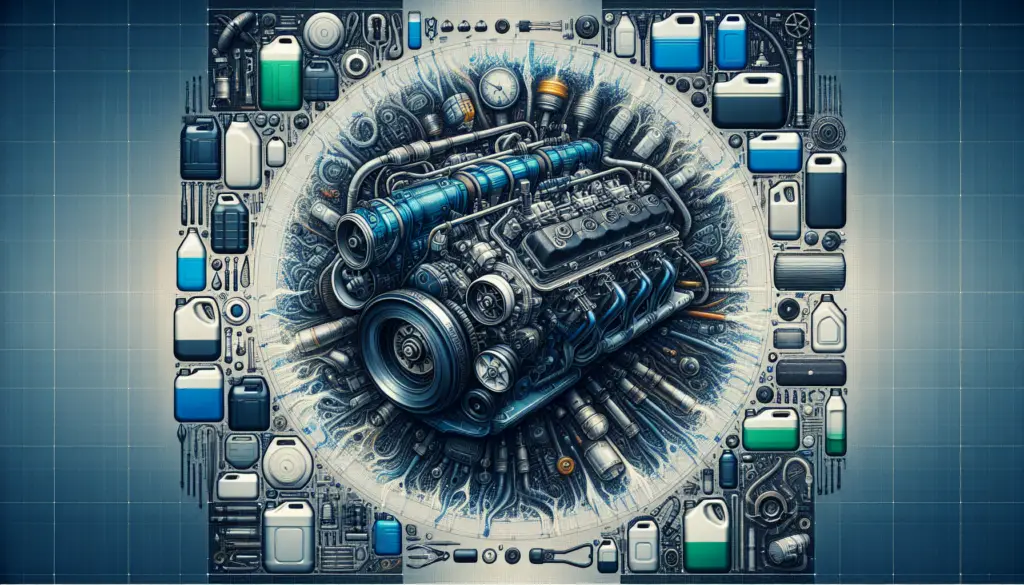
Checking And Replacing Fuel Filters
Fuel filters play a critical role in keeping your engine running smoothly.
Why fuel filters are important in boat engines
Fuel filters remove impurities from the fuel before it reaches your engine, preventing damage and enhancing performance.
How to check your fuel filters
Checking your fuel filters involves inspecting the outside for leaks or damage and opening it to examine the element for signs of debris or contamination.
Symptoms of a failing fuel filter
A failing fuel filter may result in poor performance, difficulty starting the engine, misfiring or even engine failure.
How to replace fuel filters
To replace fuel filters, turn off the fuel supply, remove the old filter with a wrench, install the new filter, and finally, turn the fuel supply back on. Make sure to dispose of the old filter responsibly.
Monitoring Fuel Consumption
Staying aware of how much fuel your boat is consuming can save you a significant amount of money and also prevent potential engine problems.
How to calculate your boat’s fuel consumption
To calculate fuel consumption, divide the total distance travelled by the amount of fuel used.
Why it’s important to monitor fuel consumption
Monitoring fuel consumption helps identify any sudden changes that could indicate potential issues. It also helps in planning trips and managing fuel costs.
Ways to reduce fuel consumption
Reducing speed, maintaining your engine, cleaning the hull regularly, and minimizing unnecessary weight can all help reduce fuel consumption.
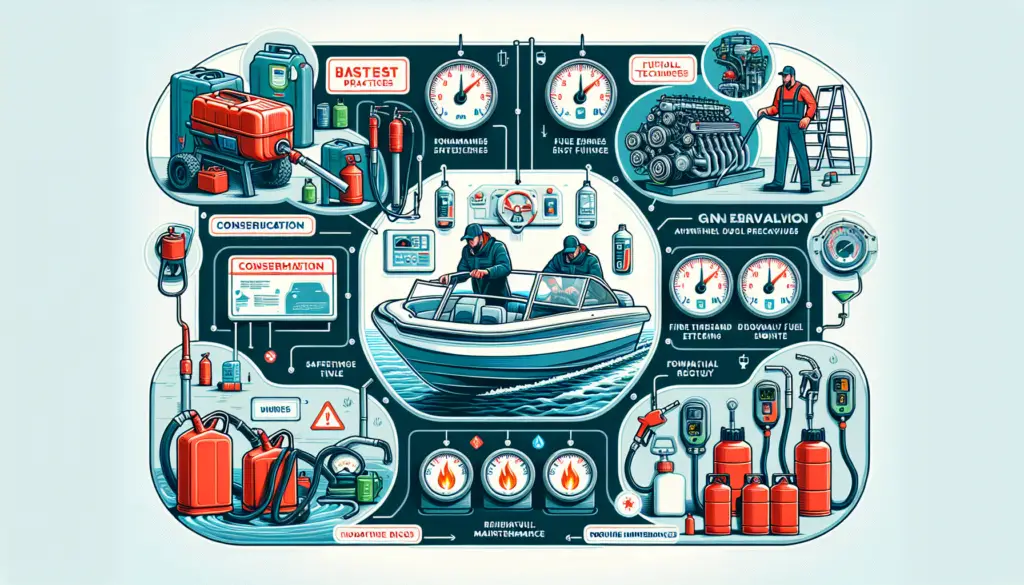
Understanding And Avoiding Fuel Contamination
Fuel contamination is a common issue that can lead to severe engine problems if not addressed.
Types of fuel contamination
There are two main types of fuel contamination in boats: water and microbial contamination. Water can enter the fuel through condensation, while microbial contamination can occur when bacteria or fungi grow in the fuel.
Causes of fuel contamination
Invalid filling practices, degraded seals, and prolonged storage can lead to fuel contamination.
How to detect and treat fuel contamination
Signs of fuel contamination include Poor Engine Performance, smoke, and a bad smell from the fuel. If detected, the fuel should be drained and replaced, and the entire fuel system should be cleaned.
Addressing Common Fuel-Related Issues
fuel-related issues are a common cause of engine problems in boats.
Causes of reduced power and engine hesitation
Reduced power and engine hesitation usually result from a blocked fuel line or contaminated fuel filter.
What to do when your engine won’t start
If your engine won’t start, check the fuel supply, fuel filters, and ensure that the fuel is not contaminated.
Troubleshooting guide for common fuel-related issues
To troubleshoot fuel-related issues, always start with the easiest solutions like checking the fuel and filters, and ensure proper ventilation. If the problem persists, it would be best to consult with a professional.
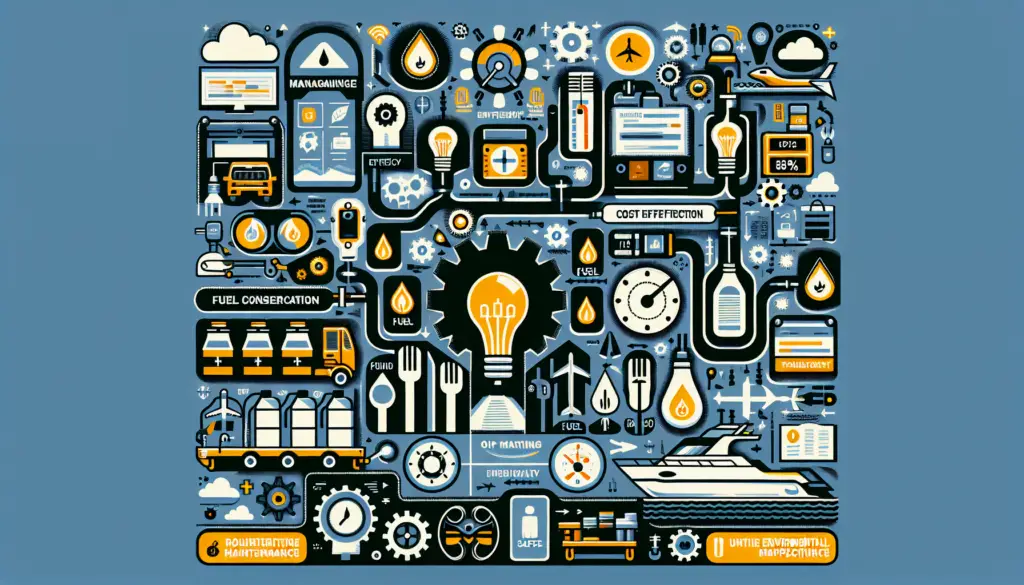
Importance Of Using Quality Fuel
The type and quality of fuel you use greatly impact your engine’s performance and lifespan.
Comparing different types of boat fuel
When comparing different types of boat fuel, petrol and diesel stand out. Diesel offers better fuel efficiency and is safer to handle, while petrol provides higher speeds and is suitable for smaller engines.
Benefits of using quality fuel
Quality fuel is less likely to lead to engine problems, provides better fuel efficiency, and extends the overall life of your boat engine.
Potential problems with using low-quality fuel
Low-quality fuel can cause a myriad of issues, including increased pollution, poor engine performance, and even total engine failure.
Winterizing Your Boat’s Fuel System
Winterizing your boat’s fuel system is an essential part of boat ownership in colder climates.
Steps to prepare your boat’s fuel system for winter
To winterize your boat’s fuel system, start by topping off the fuel tank to avoid condensation. Then, add a fuel stabilizer to prevent fuel degradation during storage, run the engine to circulate the stabilizer, and finally, disconnect the fuel line and run the engine until it stops.
Why winterizing is important
Winterizing prevents fuel degradation and condensation that can lead to fuel contamination during the off-season.
Potential issues if not properly winterized
If not properly winterized, your boat’s fuel system can develop condensation and contamination, leading to severe engine issues when you start your boat in the spring.
Boat ownership is a pleasure that comes with responsibilities. Understanding and maintaining your boat’s fuel system ensures a smooth and worry-free boating season. Keep up with your regular maintenance and inspections, and you’ll be all set for many seasons to come.

